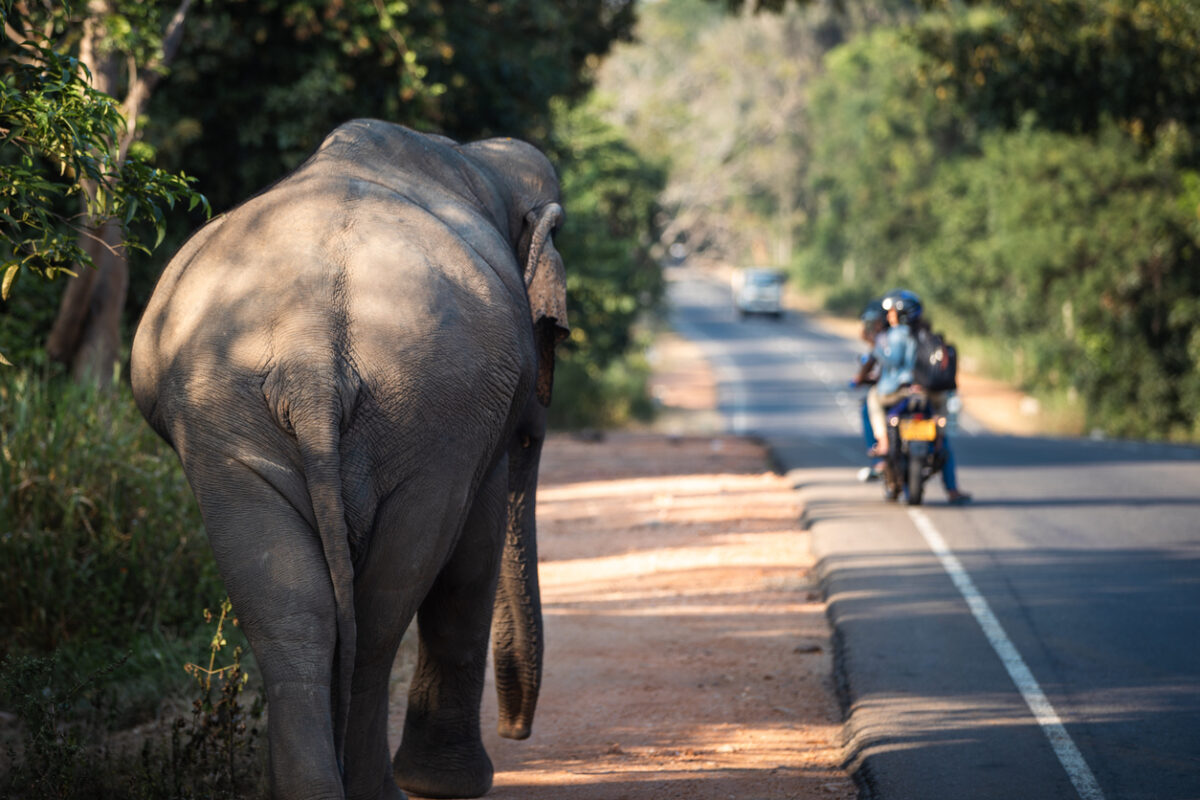Volunteering in Sri Lanka offers a unique blend of meaningful work and cultural immersion, making it an enriching experience for those looking to give back while exploring a beautiful and diverse country.
To ensure a successful volunteer stint, careful planning and preparation are essential. Here are the top 10 tips to help you navigate the essentials and make a positive impact during your time in Sri Lanka.
1. Choose the Right Volunteer Program
Selecting the right volunteer program is crucial for a fulfilling experience. Research different volunteer organizations in Sri Lanka to find a program that matches your interests and skills. Whether it’s marine conservation, community development, or teaching English, choosing a program that aligns with your passions will make your time more enjoyable and impactful.
Explore a few Reputable Programs here:
Most Popular Guidebooks
International Volunteer HQ (IVHQ)
Volunteer in Sri Lanka with International Volunteer HQ (IVHQ) to immerse yourself in meaningful projects and explore the country’s rich culture. IVHQ offers a diverse range of programs, including:
- Elephant Welfare
- Medical
- Teaching
- Turtle Conservation
- Construction and Renovation
- Community Development
Volunteers can join year-round, and accommodation is provided in volunteer houses, ensuring a comfortable stay. Programs range from 1 to 12 weeks, open to individuals aged 16+ and families.
GoEco
Volunteer in Sri Lanka with GoEco and engage in impactful projects while exploring this beautiful island nation. With GoEco’s 3rd Week Free Grant, enjoy the benefits of a third week free of charge when you sign up for two weeks or more.
Here are some program options:
Projects Abroad
Volunteer in Sri Lanka with Projects Abroad through one of their many diverse projects, including:
Live with a host family, immerse yourself in Sri Lankan culture, and enjoy 24/7 support from dedicated staff.
Involvement Volunteers International (IVI)
Volunteering in Sri Lanka with Involvement Volunteers International (IVI) offers a unique opportunity to expand your potential, experience new cultures, and explore breathtaking destinations. There are several diverse projects to choose from, including:
- English Teaching
- Special Needs Support
- Turtle Conservation
- Medical And Nursing Internships
- Temple Restoration Project
Volunteers live with host families, immersing themselves in the local culture and community. Accommodation includes shared rooms with fellow volunteers, and three meals per day featuring delicious Sri Lankan cuisine.
Each program also includes a thorough orientation with language lessons, cultural tours, and 24/7 in-country support. Volunteering with IVI in Sri Lanka promises a fulfilling and unforgettable experience, making a real difference in the lives of the local people.
Volunteering Solutions (VolSol)
Volunteering in Sri Lanka with Volunteering Solutions (VolSol) offers an enriching experience across diverse and impactful programs like:
- Working With Elephants
- Turtle Conservation
- Empowering Women
- Dog Care
- Environmental Conservation
- …and more!
Programs range from 1 to 24 weeks and are available in beautiful locations such as Galle, Kosgoda, and Wasgamuwa National Park. For those short on time, VolSol’s short-term Travel Programs offer a condensed yet impactful volunteering experience.
VolSol has earned the trust of thousands of volunteers over the past 17 years, making it one of the best volunteering organizations in Sri Lanka. Volunteers receive full support from a local team and a certificate upon program completion.
2. Understand Visa Requirements
Before you go, make sure you know the visa requirements for volunteering in Sri Lanka. Typically, a tourist visa is sufficient for short-term volunteer work, but it’s important to check the specific regulations for your chosen program. Some organizations may assist with visa arrangements, ensuring a smooth application process.
The Sri Lanka ETA is an electronic visa for short-term visits, valid for up to 30 days with double or multiple entries. All foreign nationals can apply online, through agencies, or at embassies. The ETA system ensures secure processing and payments. Extensions up to 270 days are possible.
3. Learn Basic Sinhala or Tamil Phrases
While many people in Sri Lanka speak English, learning a few basic Sinhala or Tamil phrases can go a long way in building rapport with the locals. Simple greetings and phrases like “Ayu-bo-wan” (hello) in Sinhala or “Vanakkam” (hello) in Tamil can make your interactions more meaningful and appreciated.
4. Respect Cultural Differences
Sri Lanka is rich in culture and traditions, which may be different from what you’re used to. Take time to learn about Sri Lankan customs, etiquette, and social norms. Dressing modestly, especially in rural areas and religious sites, and showing respect for local customs will help you integrate better and show respect to the local community.
Cultural Tips:
- Dress Modestly: Cover shoulders and knees, especially in temples and rural areas.
- Use Your Right Hand: For eating and exchanging items, the left hand is considered unclean.
- Remove Shoes: Before entering homes and religious sites.
5. Pack Appropriately
Sri Lanka’s climate varies, so pack clothing suitable for the weather conditions of your destination. Lightweight, breathable clothing is essential for the hot and humid climate, and don’t forget essentials like sunscreen, insect repellent, and any necessary personal items. If you’re volunteering in areas with significant rainfall, bring waterproof gear.
6. Stay Healthy and Safe
Your health and safety are paramount. Make sure you have all necessary vaccinations before traveling and bring any medications you might need. Familiarize yourself with common health issues in Sri Lanka and take precautions such as drinking bottled or purified water. Additionally, be aware of your surroundings and follow local safety guidelines.
Health Tips:
- Vaccinations: Ensure you are up-to-date on vaccines such as Hepatitis A and B, Typhoid, and Tetanus. Travelers from certain countries may need to get a Yellow Fever vaccine as well.
- Water Safety: Drink only bottled or purified water to avoid waterborne illnesses.
- Mosquito Protection: Use insect repellent and wear long sleeves and pants to protect against mosquito bites.
7. Be Flexible and Adaptable
Volunteering in a new country can come with unexpected challenges. Stay flexible and open-minded, and embrace the differences. This mindset will help you navigate any obstacles and make the most of your experience. Remember, part of volunteering is about learning and adapting to new environments.
8. Engage with the Local Community
Building relationships with the local community is one of the most rewarding aspects of volunteering. Take time to interact with locals, participate in cultural activities, and show genuine interest in their way of life. This engagement will enrich your experience and leave a lasting positive impact.
Ways to Engage:
- Cultural Events: Attend local festivals, ceremonies, and cultural performances.
- Community Activities: Participate in community gatherings and activities to build relationships.
- Local Cuisine: Try traditional Sri Lankan dishes and learn about local cooking methods.
9. Maximize Your Free Time
While volunteering in Sri Lanka, it’s important to balance work with leisure to fully enjoy the experience. Making the most of your free time will enhance your overall stay and provide a deeper understanding of the local culture and natural beauty.
Ideas for Free Time Activities:
- Explore Nature: Sri Lanka boasts stunning landscapes, from pristine beaches to lush rainforests. Spend time exploring national parks, hiking trails, and coastal areas.
- Cultural Excursions: Visit historical sites, temples, and local markets to immerse yourself in the rich cultural heritage of Sri Lanka. Places like the Sigiriya Rock Fortress, Temple of the Sacred Tooth Relic, and Galle Fort are must-see landmarks.
- Local Cuisine: Try traditional Sri Lankan dishes such as hoppers, kottu roti, and seafood specialties. Take a cooking class to learn how to prepare these delicious meals yourself.
- Wildlife Watching: Sri Lanka is home to diverse wildlife, including elephants, leopards, and marine life. Consider joining a safari or whale-watching tour to experience the country’s incredible biodiversity.
- Relax and Unwind: Take time to relax on Sri Lanka’s beautiful beaches or enjoy a traditional Ayurvedic spa treatment. The serene environment will help you recharge for your volunteer work.
10. Reflect and Share Your Experience
After completing your volunteer work, take time to reflect on your experiences. Consider how your efforts have contributed to the community and how the experience has impacted you personally. Sharing your journey with friends, and family, and on social media can inspire others to volunteer and support similar initiatives.
Reflection Tips:
- Journaling: Keep a journal of your daily experiences and reflections.
- Storytelling: Share your experiences through blog posts, social media, or presentations.
- Stay Connected: Keep in touch with the people you met and the organization you volunteered with to stay informed about their progress.
Impactful Volunteering in Sri Lanka
Volunteering in Sri Lanka can be an incredible way to give back while experiencing a new culture. By choosing the right program, understanding visa requirements, and being prepared and respectful, you can ensure your volunteer work is both impactful and enjoyable. Whether you’re working in marine conservation, teaching English, or helping with community development, these tips will help you have a successful volunteer experience in Sri Lanka. Happy volunteering!


Munira Maricar · Travel Writer
With an international living background spanning Singapore, Qatar, Japan, and Mexico, Munira enjoys sharing insights on immersive travel while emphasizing the vital role of cultural respect and ethical engagement. Her extensive experience offers a unique perspective that inspires others to explore the world through service, ensuring that every journey respects and contributes positively to local traditions and communities.